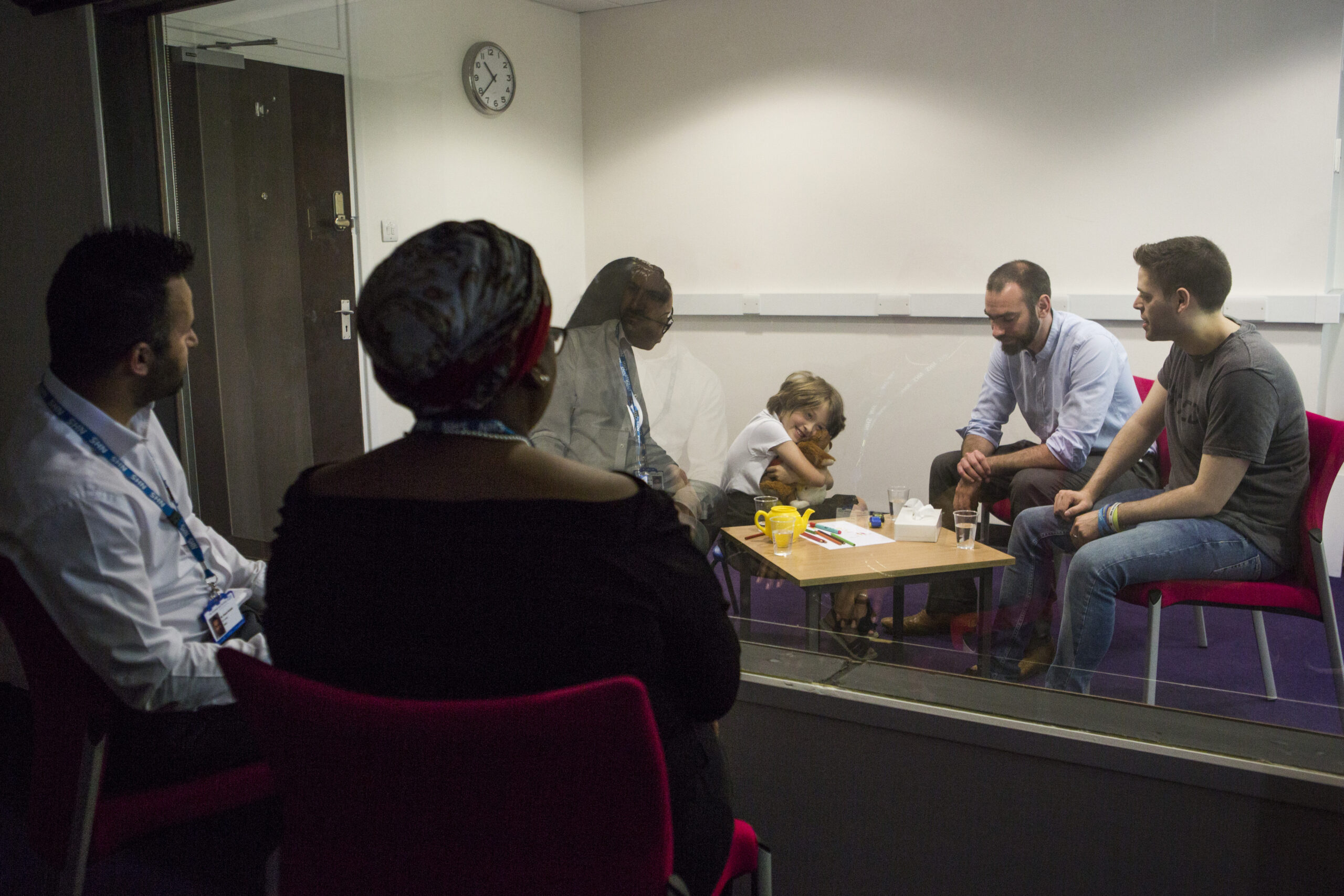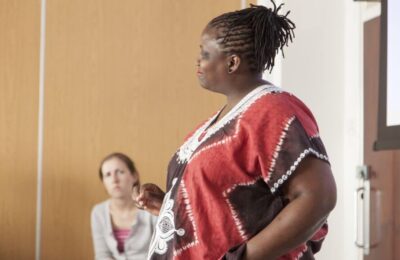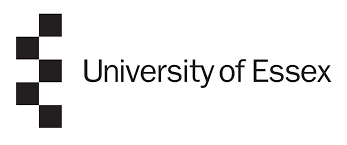
Systemic Approaches to Working with Individuals, Families and Organisations (D4F, foundation)
Develop an understanding of systemic theory and practice with the most advanced pre-qualifying course in systemic approaches
This course will provide you with a well-developed understanding of systemic theory and practice which will underpin your work with diverse families and organisations.
It is the most advanced pre-qualifying course in systemic approaches and is considered the best preparation for the clinical training in the UK. This course is validated by the University of Essex and accredited by the Association for Family and Systemic Psychotherapy (AFSP).
This course is also offered at intermediate level.
Please note: you may see the D4F course also referred to as SYGCTP002 in communications from our application system.
Applications for this course are now closed for September 2025 entry. Please register your interest to be notified when applications open for 2026 entry.
About this course
Systemic family therapy involves working therapeutically with individuals together with their families and/or significant others.
This course will allow you to develop an understanding of systemic ideas and skills which can be applied to your work. You will learn how to reflect on the personal and professional dimensions of your work and start to identify and understand multiple contexts. This will widen your perspective when thinking about, and reflecting on, your clinical practice.
The course consists of the following elements:
- theoretical seminars
- application seminars
- whole-day events
- personal tutorials
- clinical work
Theoretical seminars combine theoretical and experiential learning with an emphasis on interactional learning. In smaller application groups, you will be expected to present your own experience using systemic theoretical concepts.
You will undertake presentations on personal and professional issues, illustrating an aspect of systemic theory.
You will attend two full-day events which include presentations and workshops by systemic clinicians.
For successful completion of the foundation course it is necessary to have completed the following clinical work:
- three clinical write ups where you have applied systemic ideas to your work or in reflection on your work
- case presentation from your work setting/placement
Summary of the foundation course
Term one
You will reflect on yourself in relation to your family of origin, your present family, and your relationships with family members and those outside the family. Genogram theory and practice will be introduced to help you develop skills and knowledge which you will link to areas of social differences and power to explore your understanding and experience of difference.
Term two
You will focus on the development of systemic theory and practice, and will be encouraged to critically evaluate different schools of thought and different theoretical positions. You will explore your own positioning in relation to these and the application of theoretical ideas to individuals, families and organisations.
Term three
You will begin to focus on specific client groups such as working with adults, or working with a family where someone has a disability. This will also include completing a genogram interview with a clinical family from your work setting or placement. You will need to be working with a family or couple to complete this assignment.
Across the year, you will apply systemic theory to practice through role play, consultations, audio and video review and work carried out in your placement or work setting. Students who successfully complete the foundation course can consider progressing to the intermediate course.
Modules
Module 1: Exploration of Difference and Diversity: Self, Family and Relationships
- FHEQ level 6
- 20 credits
- Core module
- Module lead: Rukiya Jemmott
Module aims
The aims of the module are to:
- explore and develop greater awareness of self in relation to childhood, family of origin, own family and the wider community and to consider the influence of your own beliefs, ideas when working with clients
- demonstrate an understanding of differences of ‘race’, culture, gender, gender identity, class, disability, age, religion and sexual orientation within your work with clients
- demonstrate how insights derived from systemic concepts can influence the relationship with clients or colleagues regarding your own difference
- offer a systemic framework in order to reflect on your differences on at least two of the dimensions ‘race’, culture, gender, gender identity, class, disability, age, religion, sexuality and sexual orientation. To demonstrate an awareness of the impact of the wider social context with regard to ‘race’, culture, gender, gender identity, class, disability, age, religion, sexuality and sexual orientation
Module assessment
You are required to deliver one 20 minute presentation, followed by 10 minutes of questions by two assessors.
Module 2: History and Developments of Systemic Theory and Practice
- FHEQ level 6
- 20 credits
- Core module
- Module lead: Rukiya Jemmott
Module aims
The aims of the module are to:
- provide an overview of the development of systemic theory and practice in its historical and social context
- provide an overview of different schools of family therapy and different theoretical developments and core concepts associated with each
- critically examine each school of family therapy in the light of evidence-based practice
- provide a theoretical framework in which to examine your position, role and responsibilities in your clinical work and organisation
- identify systemic theories to evaluate the professional beliefs and values that underpin professional practice and service delivery
- demonstrate the influences of wider social and political contexts and the effects these have on the development of individuals, couples, families and organisations
Module assessment
You are required to submit a 2,500 word theory essay.
Module 3: Applications to Practice
- FHEQ level 6
- 20 credits
- Core module
- Module lead: Rukiya Jemmott
Module aims
The aims of the module are to:
- develop observational skills while drawing on systemic concepts
- provide a systemic framework for thinking about family communication
- develop research skills which include the identification of a clinical family, the negotiation of the observation and writing up the collected data
Module assessment
You are required to conduct a genogram with a family or couple that you are working with and submit a 2,500 word genogram essay.
Who is this course for?
This course is for professionals working with, or who would like to work with, couples or families, in mental health trusts, healthcare, education, social care or voluntary agencies.
You may be a:
- social worker
- teacher
- psychologist
- psychiatrist
- nurse
- learning mentor
- GP
- counsellor
If you do not have one of these qualifications, you may still be able to demonstrate equivalency of experience. Please contact us to discuss eligibility.
You will need to have opportunities to work with couples and families, either in your professional role, in a placement, or as part of a reflecting team.
Course details
To be eligible for this course, you need to:
- have a first degree in social work, psychology, medicine, nursing, education or any allied field, or are able to demonstrate an equivalent level of relevant experience
- be working or volunteering in a setting where you have the opportunity to work with families and/or couples of two or more generations, either in a professional role or as part of a reflecting team
Tuition fees
Home
£ 3,570 (2025/26)
International
£ 7,140 (2025/26)
For more information on tuition fees, including paying for tuition fees, please refer to our tuition fee guidance.
Funding
Bursaries
We’re committed to becoming an inclusive education provider. We offer several bursaries for new students from Black, Asian or Minority Ethnic / Global Majority backgrounds, funded by The Tavistock and Portman Charity.
Funding for current students
We offer several funding options to support current students who need financial assistance during their studies. Please refer to our financial support guidance for more information.
Assessment
This course is assessed through three assignments:
- a ‘difference’ presentation; this will be a 20 minute presentation, followed by 10 to 15 minutes of questions by two assessors
- a 2,500 word theory essay
- a genogram exercise with a family/couple, followed by a 2,500 word genogram essay
Attendance
Tuesday evenings from 5.30 to 8.30pm.
This course enhances a professional’s skills in working systemically with children, families, couples, adults and organisations.
Graduates often report that their confidence at work improves and progression is enhanced in the health, social care and voluntary sectors as well as in independent practice.
Students are advised to join the Association for Family and Systemic Psychotherapy to continue access to systemic thinking and CPD opportunities. Those that graduate from the foundation course can proceed to the intermediate level training.
Why study with us?
We have been delivering systemic training for over 30 years. We offer a high level of training delivered by experienced clinicians and supervisors.
If you want to progress on to the intermediate course, and subsequently the Systemic Psychotherapy Master’s, then this course will prepare you by giving you exposure to clinical work from an early stage.
Course facilitators
Validations and accreditations
This course is validated by the University of Essex.
This course is accredited by the Association for Family and Systemic Psychotherapy (previously known as the Association for Family Therapy and Systemic Practice)
Register your interest
Applications for this course are now closed for September 2025 entry. Please register your interest to be notified when applications open for 2026 entry.
Recommended courses
Explore courses to study next
-
 Postgraduate certificate Eligible for Student Visa
Postgraduate certificate Eligible for Student Visa
Systemic Approaches to Working with Individuals, Families and Organisations (D4I, intermediate)

